Hammer Time: The Apex Interviews Gord Duff
Our guest this week is Gord Duff, who holds the impressive title of Global Head of Auctions at RM Sotheby's and one of the few people trusted by an exclusive clientèle to buy and sell the world's finest cars, often sight unseen, over the phone.

Gord joined us to talk about what it's like being one of the world's leading car specialists and to give us some insight into the thrilling, mysterious and often intimidating world of collector's automobiles.
Hector Kociak interviews Gord Duff for The Apex by Custodian. Recorded and produced by Jeremy Hindle and Guillaume Campos. Transcribed by David Marcus. Edited by Hector Kociak & Charles Clegg.
Could you tell us about your journey into the car world? How did you get to where you are?
I almost feel like it's a bit of an accident, but I've been with RM for 23 years! I started in a high school co-op when I was 18 years old, with a restoration shop. My dad knew somebody that ran the shop, and I kind of got my foot in the door. I was always into old cars; my dad used to have a Ford dealership, and I knew about Thunderbirds, Mustangs and Corvettes, but never the kind of things that we deal with today. I basically did that for a while, and since I knew how to drive a truck and a trailer, RM once asked me to go pick up a car somewhere. I started like that; at the last minute I got asked to come work at an auction that we used to do up in Toronto, Ontario, and I was floored to get paid to drive across an auction block. I thought that was a pretty cool thing. I then got offered a job transporting cars for us, and it was right at the cusp of us buying the Monterey Auction.
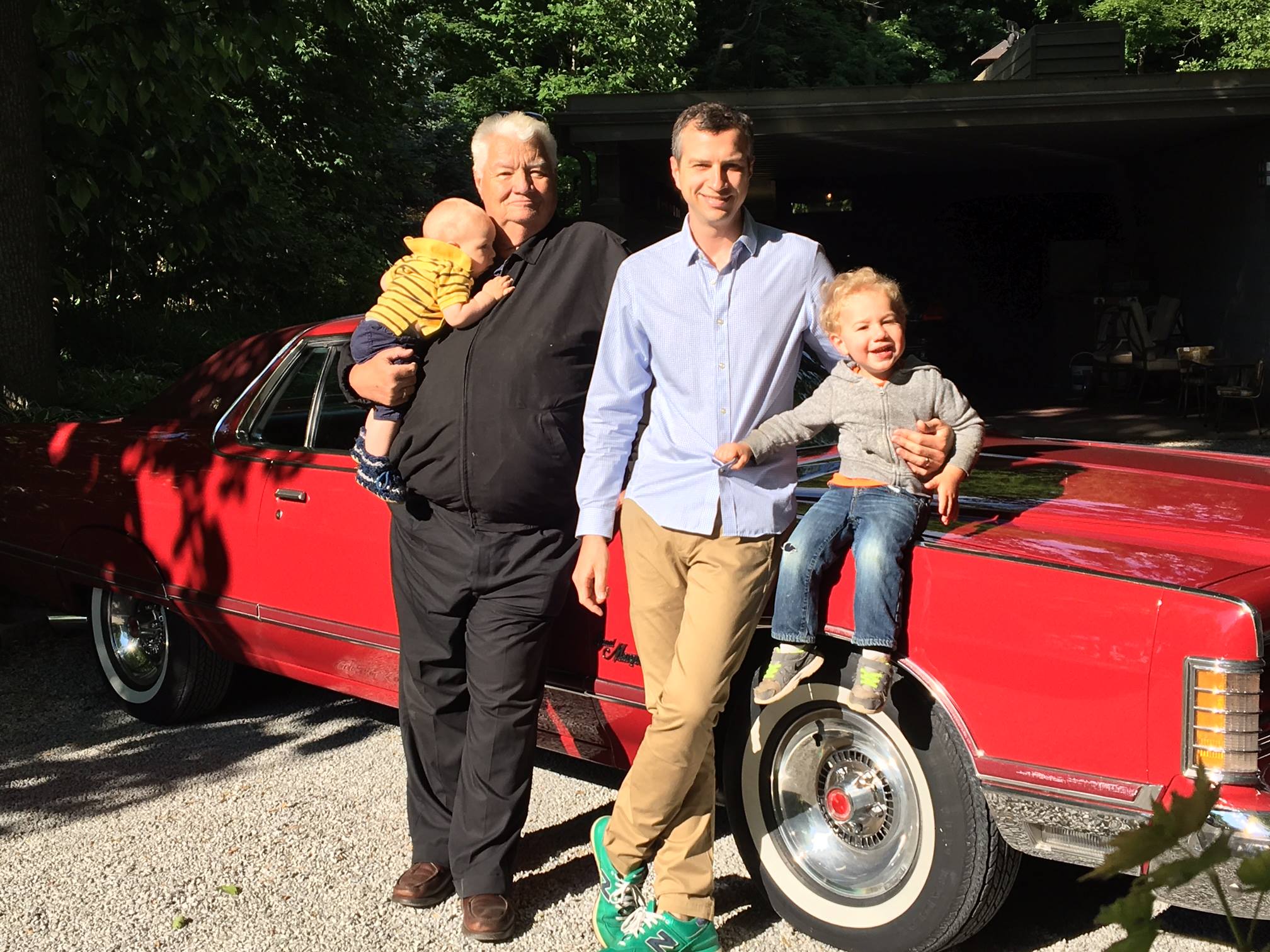
We bought Monterey in 1997, so by the fall of ‘98 and into early ‘99 we started the Amelia Island Auction with the concours, and then by 2000 it was Scottsdale, and we were just starting to expand. I got in at just the right time. I was a very hard worker and wanted to make money, so I worked as many hours as I could, and I did whatever needed to be done. I went from transporting cars to working auctions to checking in the cars and driving them across the block, to getting to know our customers and taking people for test drives. From transporting the cars and working our auctions, I knew what a good car was and what a bad car was, and you got to know which cars had issues. Everything just kept rolling from there!
In about 2008, Rob, our founder, came to me and literally had to pull me out of driving the truck. He told me I needed to be a specialist and to start following him around. He finally gave me an ultimatum: either get out of the truck and start being a specialist, or I'm going to pass you by so you better like it if you're going to be stuck in it forever! I said okay, I'll try it for a year, but if I don't like it I want to go back to what I was doing. And that's kind of it - it just took off from there.
It sounds like a real hands-on apprenticeship!
Yes, I've learned everything from the bottom of running auctions all the way up. The only thing I haven't done is been an auctioneer, which I'm totally fine with!
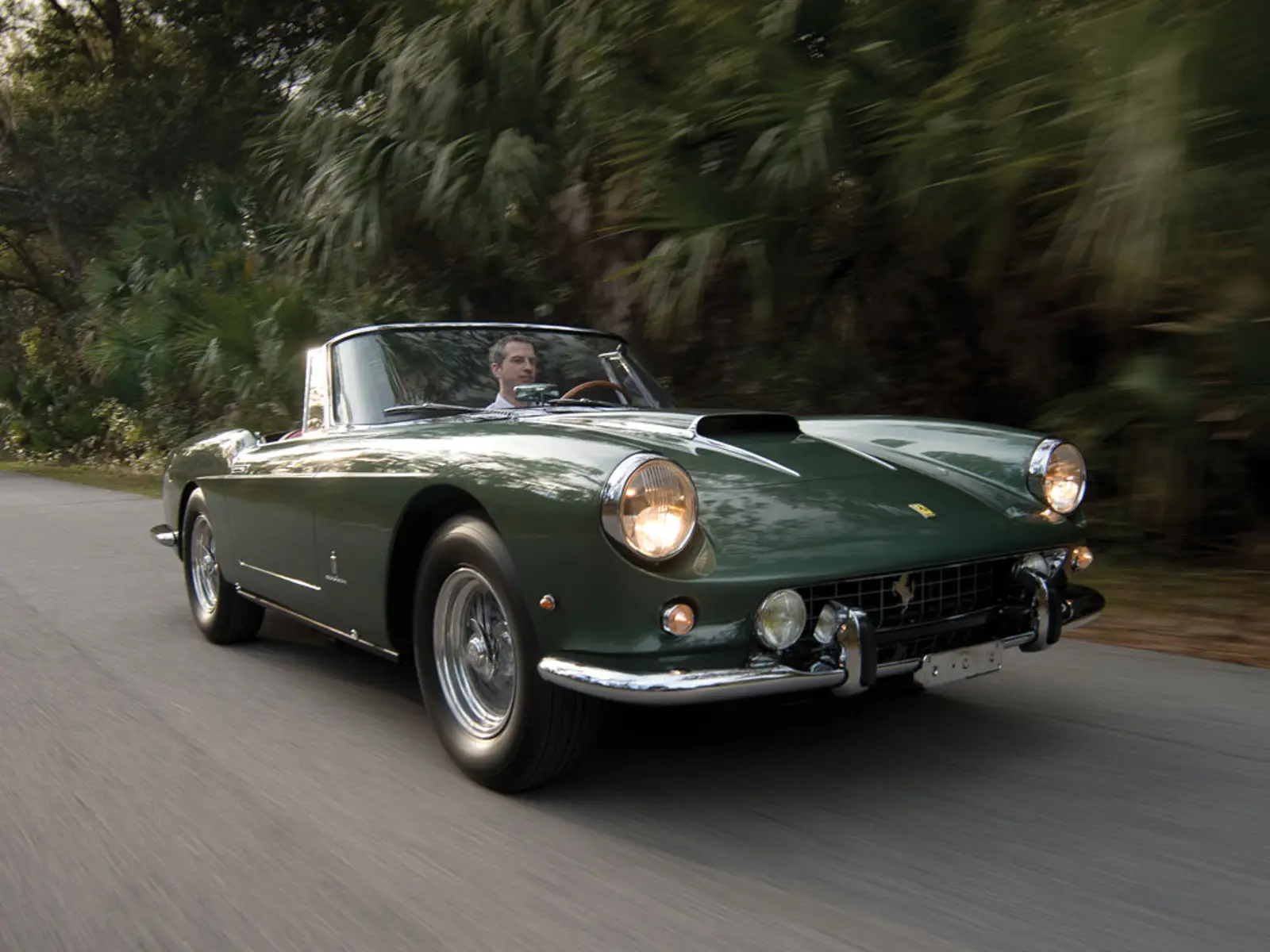
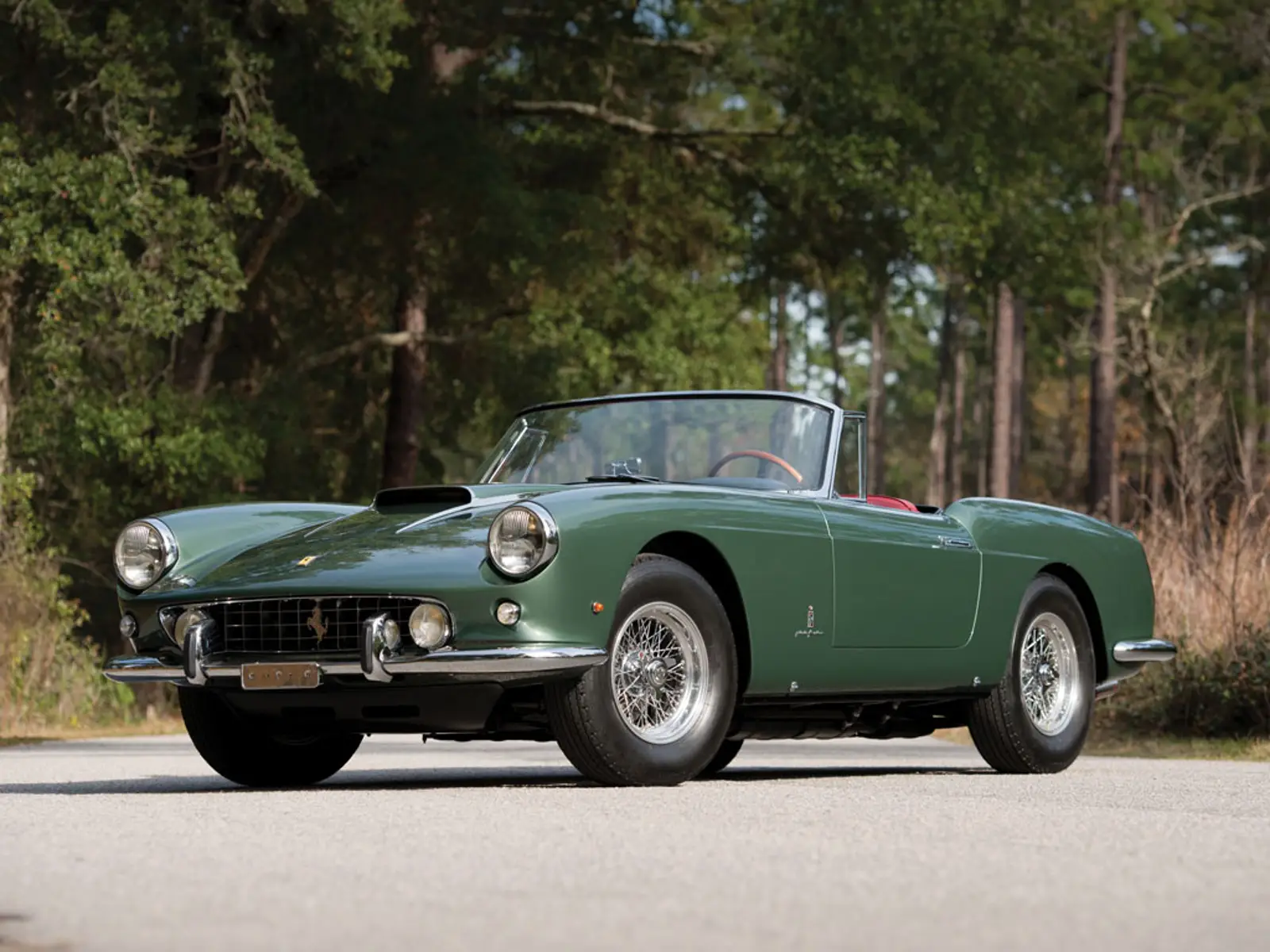
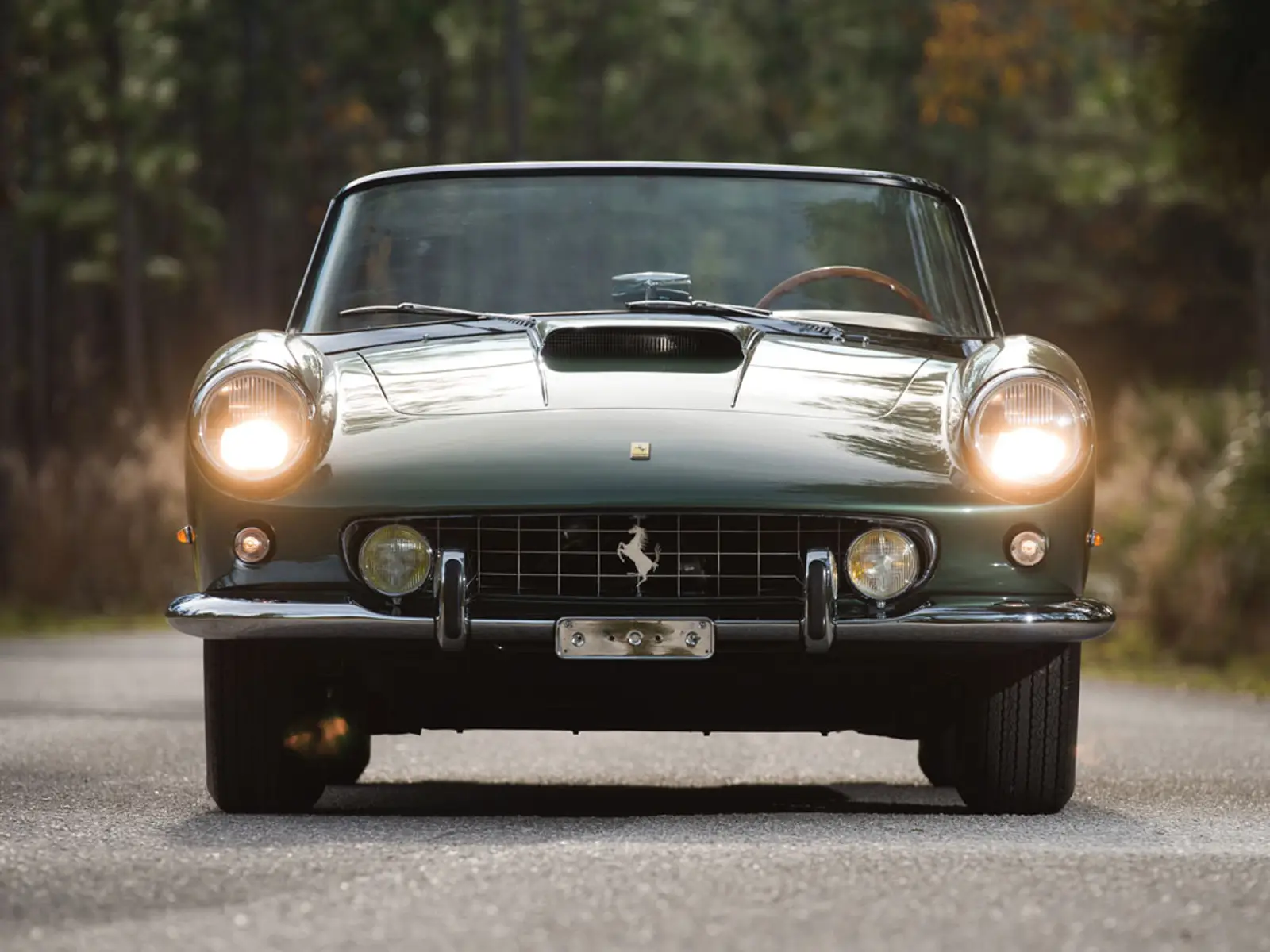
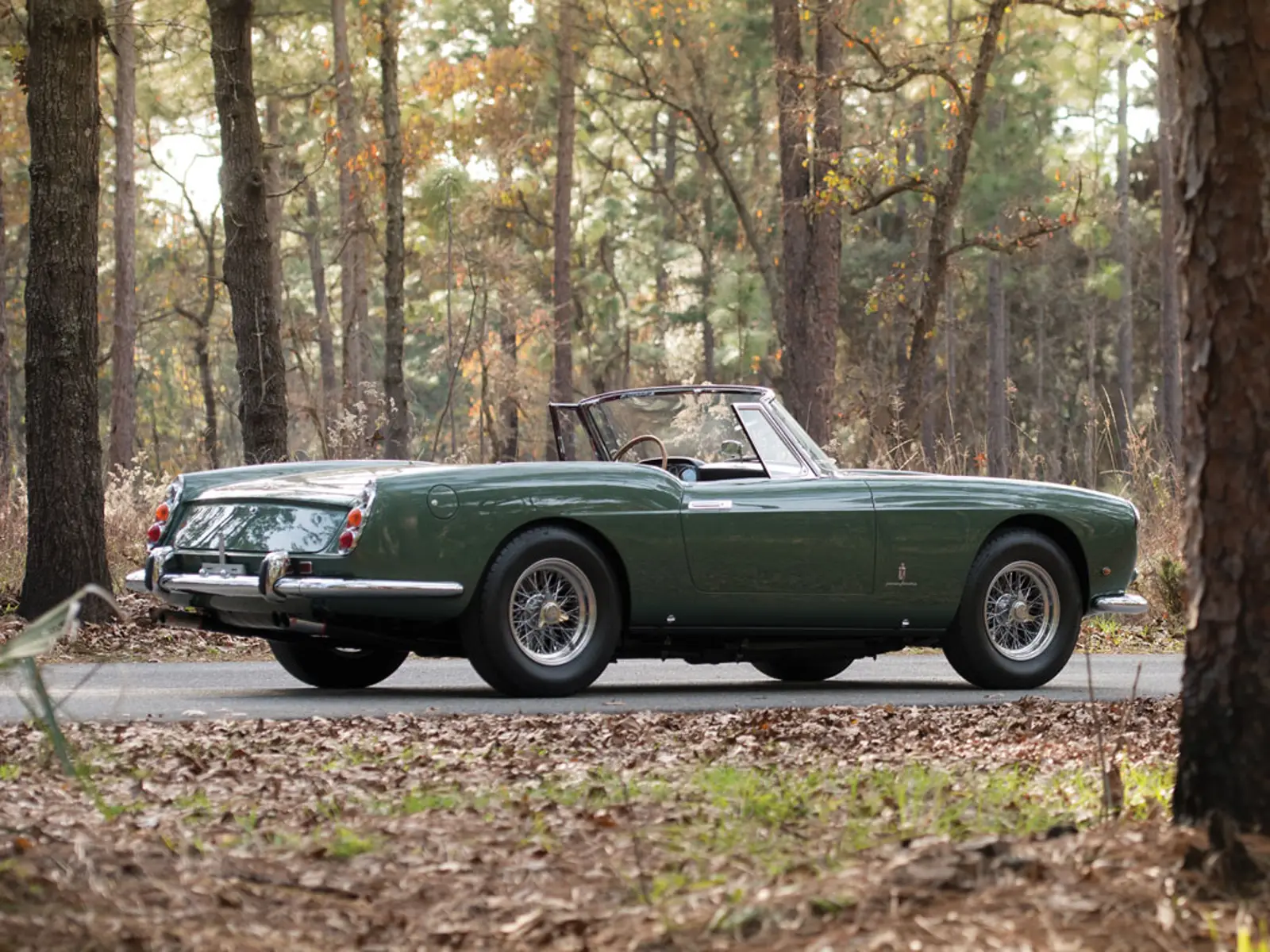
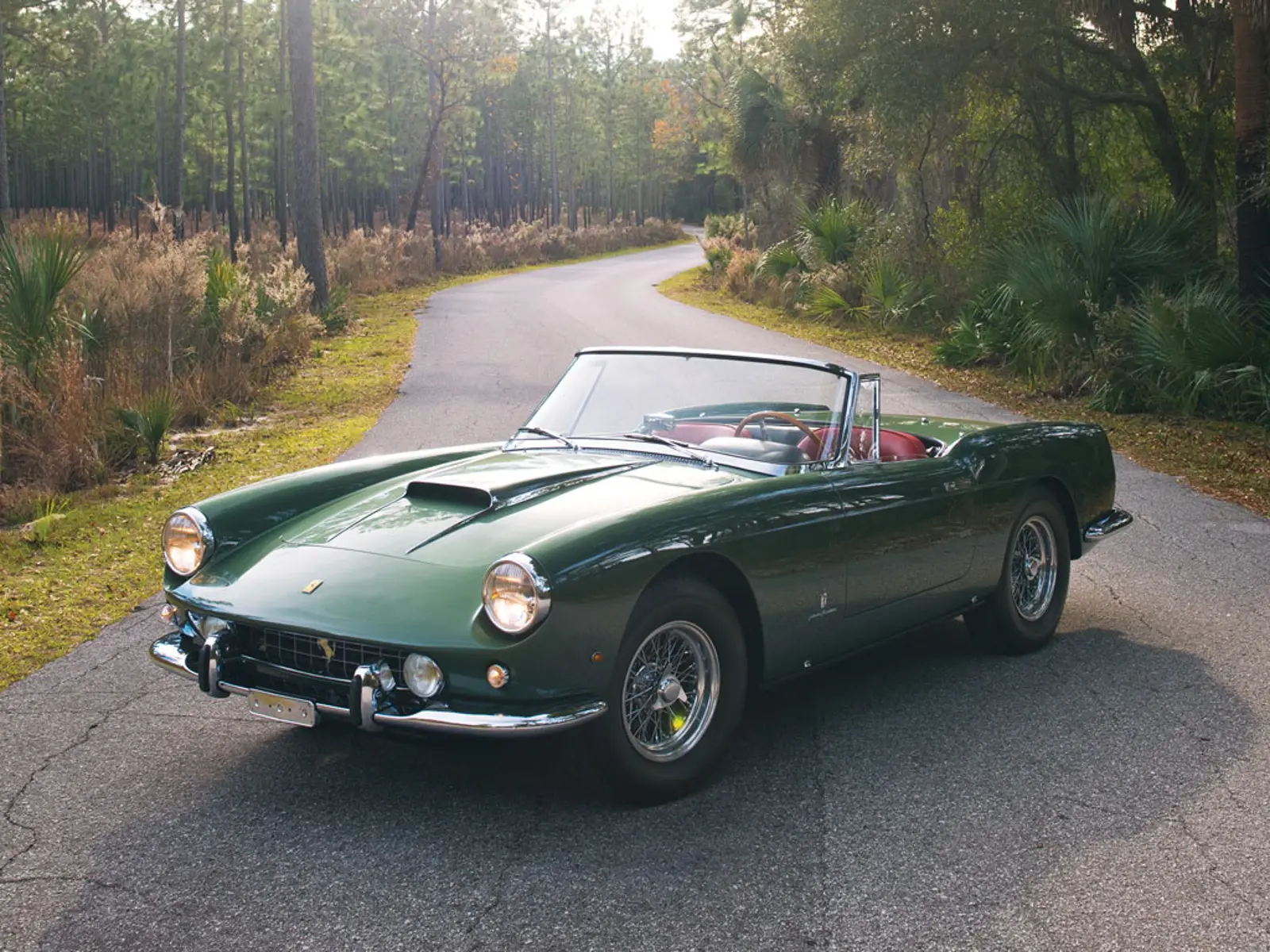
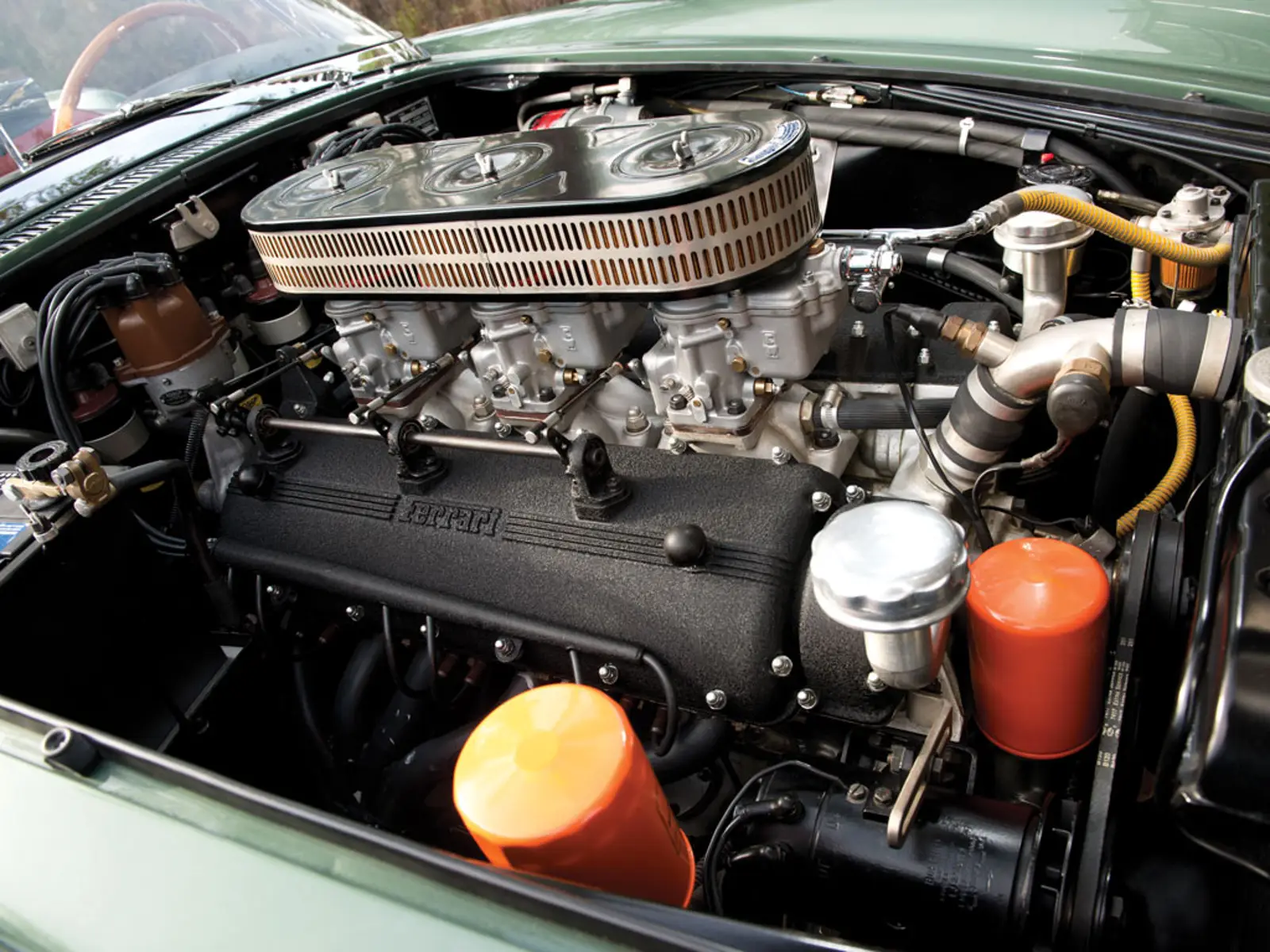
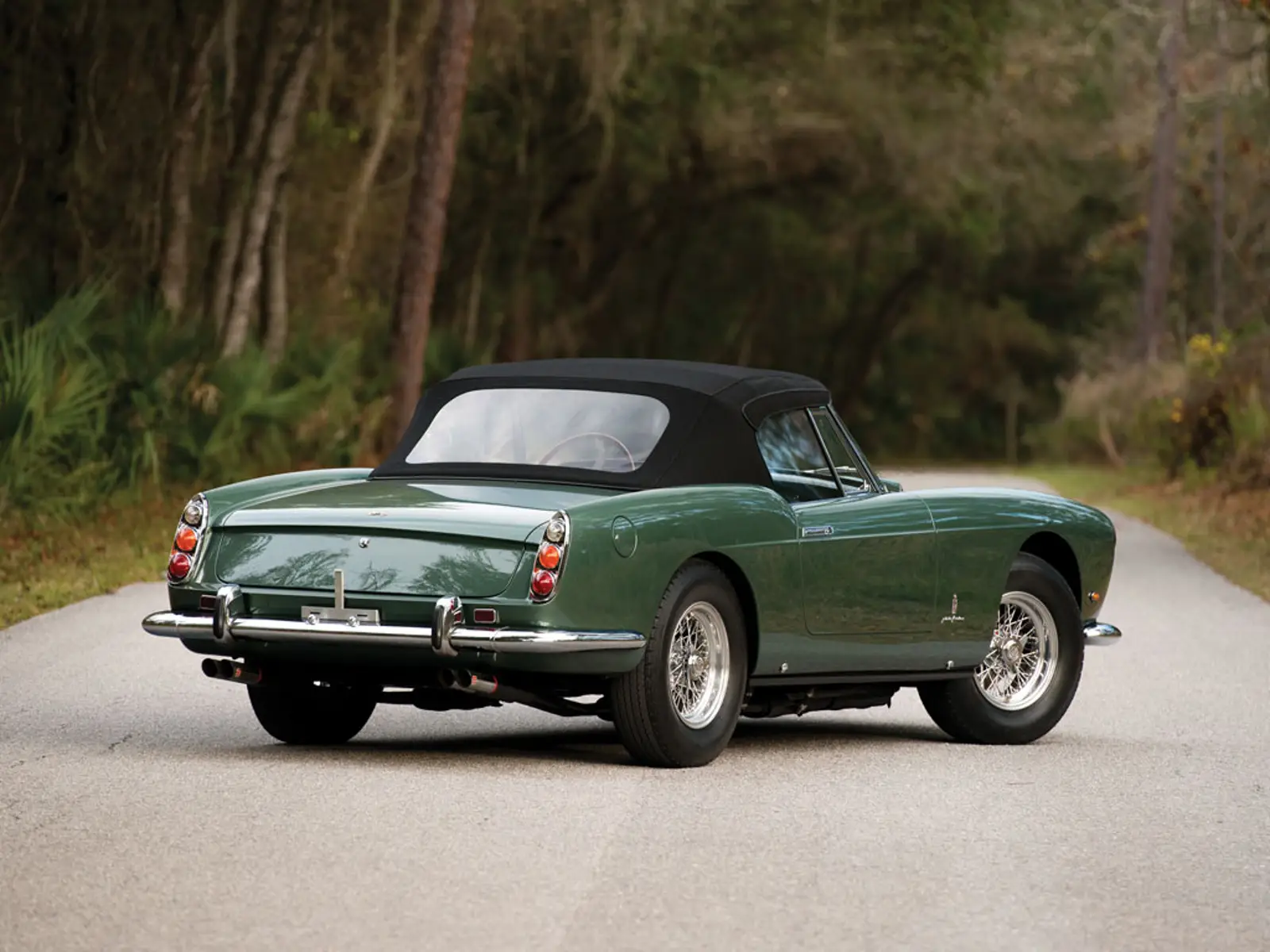
Perks of the job! Gord behind the wheel of 1960 Ferrari 400 Superamerica SWB Cabriolet handled by RM Sotheby's in 2015. Source: RM Sotheby's
What's your perspective on the state of the car market today? How would you describe the main market dynamics that we're seeing right now?
Today, it's amazing. To have gone through what happened in the world with Covid, and even our business being a live business that got shut down literally overnight three days after Amelia Island, we had a sale two weeks later. In a matter of five days we switched it over to an online platform, not really knowing how to run the platform for the amount of cars we had, and we came out of that selling $15 million worth of cars over two days! Everybody thought that with things like real estate and cars, there would be lots of deals out there and values would drop, but it did the exact opposite, and just caught fire.
Every segment of the market accelerated back to maybe not 2015 pricing, but it’s definitely super hot right now. It's everything from the seven figure and up cars to the Toyota Supras that are all of a sudden bringing in 30% more, or the Testarossas that have picked up steam from where they were, to Fox-bodied Mustangs that have gone from $35,000 to $60,000. It's amazing to see and to try and figure it all out.
What do you think is fuelling this market strength and the popularity of vintage and classic car sales?
Perhaps some people have a lot more time on their hands, and like people buying homes or doing improvements, some people have a lot more disposable income because they're not spending it on vacations or travel. I think people are probably looking at things they always wanted and thinking okay, now is the time, and they're going after them. The phrase ‘collector car’ has grown so much, to where you would have never thought certain cars from the ‘90s era or 2000s would have been called collectible. That's not the case any more. The word ‘collectible’ is such a broad term now, and it covers literally every segment of the market up to modern-day stuff.
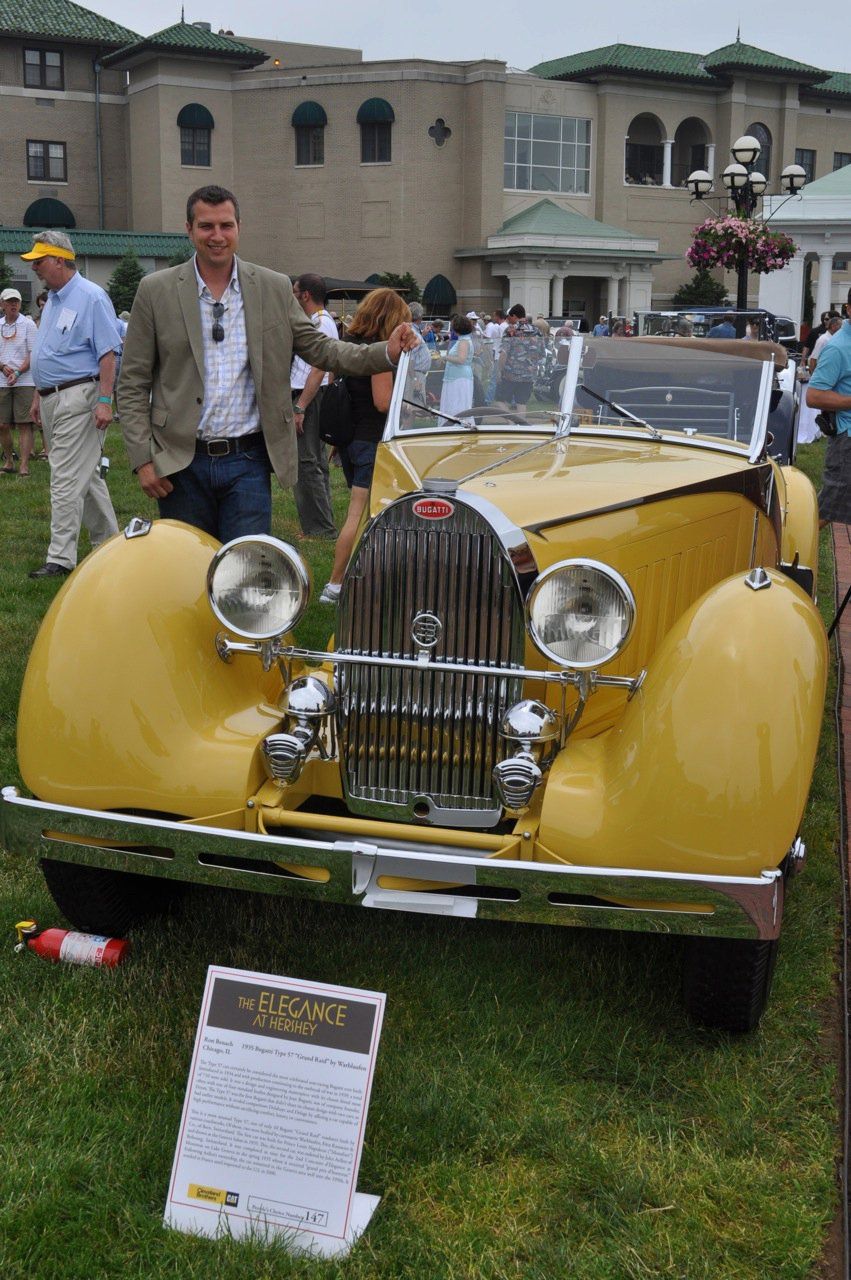
Do you think the market differs in strength across the US, Europe, and the UK?
Yes, every continent seems to have different things that are fuelling the acceleration in values. I would say the United States, or North America, is definitely the hottest market at the moment compared to the UK. You're dealing with Brexit, to be honest, getting cars in and out and the taxation requirements for that, and as for Continental Europe, it's strong, but I think North America is probably the strongest. I don't know if that's just more cars, or that there's more ways to buy a car publicly. There's more online auctions there, more auction houses, and there's just more product out there for sale.
What do you make of the growth and popularity of internet auctions in the last five years or so? Do you think digital experiences rival the physical auction or is there space for both?
No, there's definitely space for both. Live auctions will always be far more interesting in my mind. I think they're a different type of experience. You're going there to see friends, for example, and I think most people would prefer to touch and feel a car versus buying it online. I think we just went through a period where that wasn't possible, so online was the only option. Obviously it's a lot easier to sell a late-model car online, but to sell a 1930s American classic or to sell a 275 GTB, there's a lot of details to cover. I don't care how many pictures you put up online, it's just not going to be the same experience as inspecting it in person.
There's a lot of people that like concierge service, going to a nice restaurant, and so on. For them it's not just about the nice food, but it's about the experience of going there, and they're willing to pay that little extra for that special experience. I think on the high-end side of live auctions, it will be more and more about the experience that will attract people there. Obviously you need great cars as well, but for us going forward it will be about making it a very special experience for our clients who are coming to one of our sales.
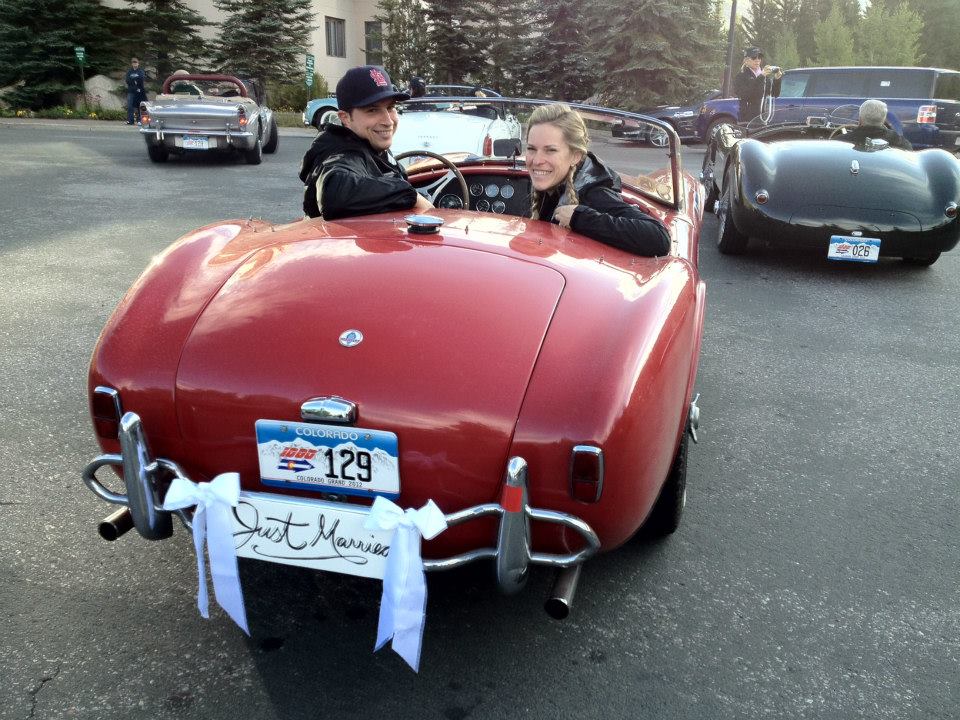
What's the secret of a good traditional auction event? What's your key strategy?
Hah, back your best clients with a no reserve collection! Really it’s about having quality cars that are priced appropriately for the market; that's what draws people to come to our sales. They know that we have good product that we've researched properly, and what we've written down is, to the T, what that car is.
I think that's often one of the things that actually distinguishes some of these bigger auctions. Friends of mine have had less than optimal experiences buying blind online.
Yes, for us online, we're standing behind what we are selling, even though we're selling it virtually. If there's a problem we're the first people to fix it, look after our buyers, look after our consigners. We are always trying to do the right thing. When we can, we go inspect the cars ourselves. We also handle other things - proper title or registration for the car, the flow of the money so you're not sending it to a stranger that you just met via email. There's a lot of things that we add to the process, and make people comfortable either selling their car with us online or buying from us. That differentiates us from others. Yes, we charge more than some of these other auction houses out there, but I think we bring a different level of service to our clients, and it gives them more comfort buying from us that they're getting what we're telling them that car is.
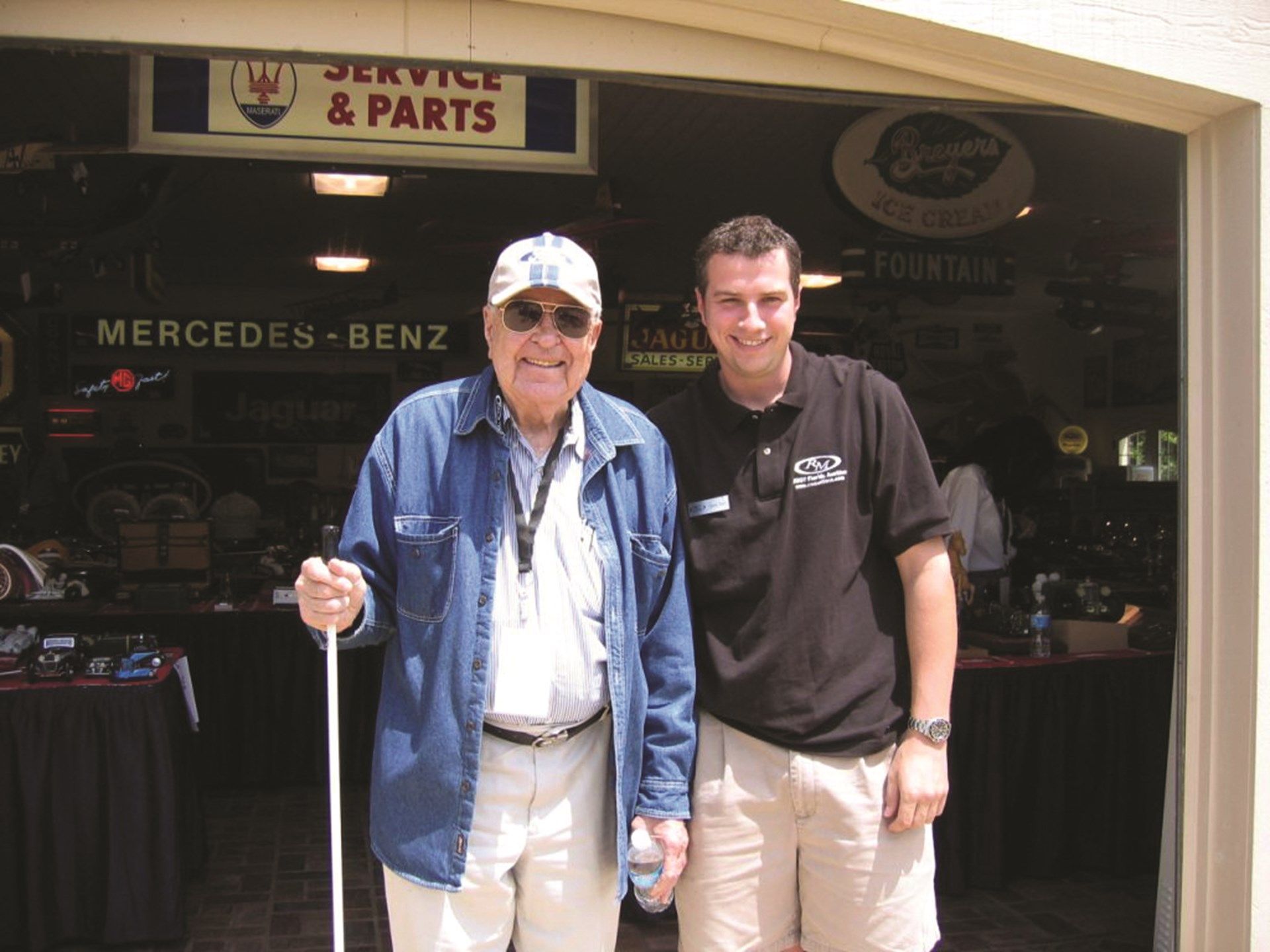
Speaking of clients, in your experience, what makes them go for the big ticket cars? Is it their value, the concept of an investment, or do some of these owners have a real passion for ownership?
I think most people have a passion for the cars. Of course there's going to be that small segment that's speculating, or just buying the cars as purely an investment. They're going to park it somewhere and hope that five years from now it's going to give them a good return. But I would say the majority of our clientèle love whatever they're buying. They've always wanted it, or we've brought something special to auction that's been in long term ownership for a long time. There’s the people that love driving the cars and doing rallies and racing them, and there's the people that just want to own them and see them sitting in their garage. There’s fans of the show circuit, and then there's that mix of the people that like doing all of the above. However for the most part, thinking of all the clients that I deal with, they love this stuff. We all have the same passion for it.
Hand in hand with that comes the driving; it’s quite a contested topic, whether you should actually be putting miles on some of these collectors’ cars. What is your take on that? Are you a fan of actually driving these things?
Yes. I understand that with buying supercars or late model cars that have very low mileage, a lot of the value is based around that mileage. I can appreciate that and understand that, but my garage will never have anything like that. I don't want to buy a 500-mile F40; I want to buy a 20,000 mile one, because I would be fine driving it. I would like something that's obviously still collectible, in a sense, but I am not type for the delivery mileage stuff. I understand who is into collecting like that though. But I'm definitely a driver, whether it's a 1900s, ‘30s, ‘50s, car or modern day stuff, I'm always going to be a driver. You're going to see my car sitting at the grocery store!
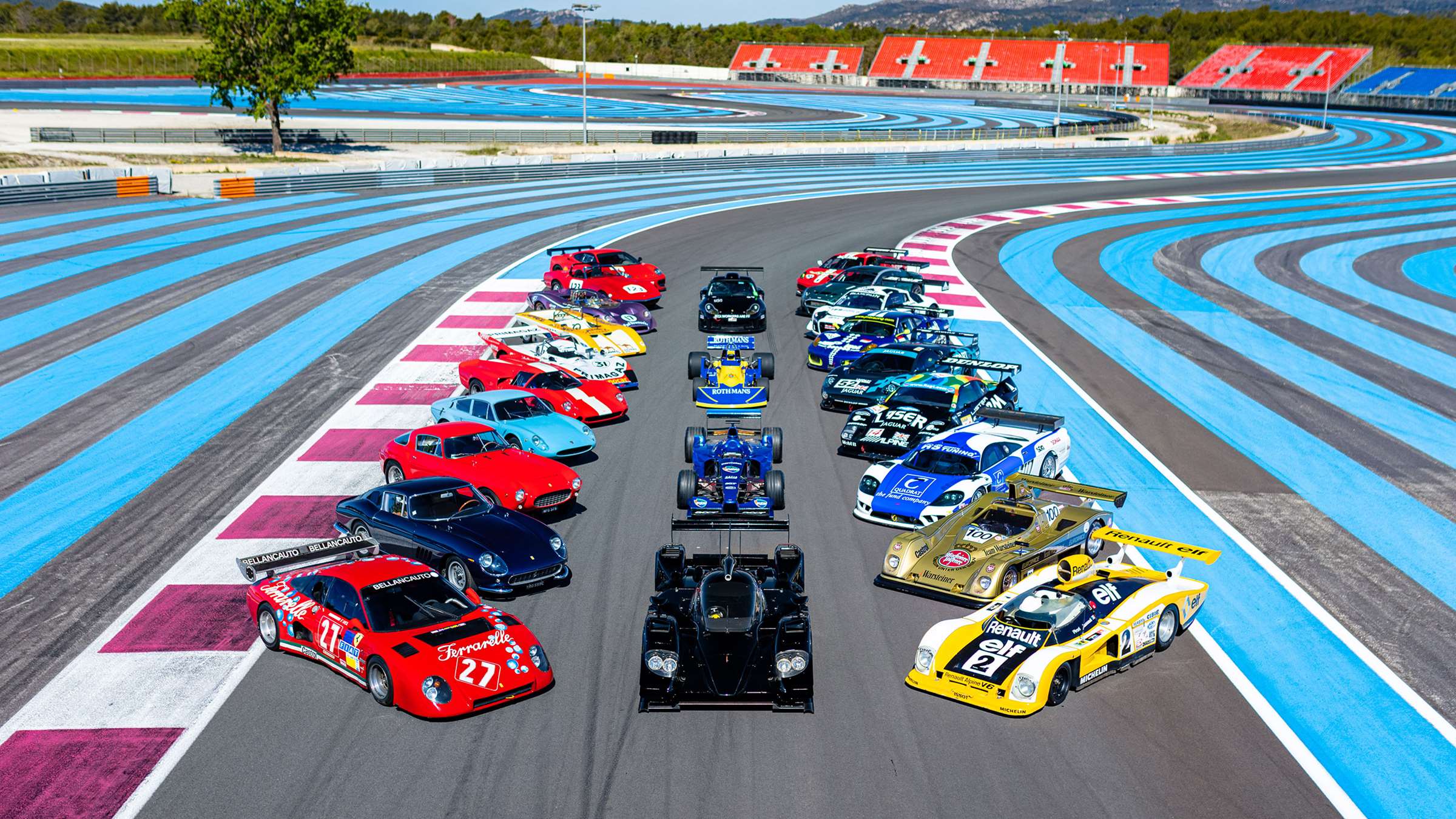
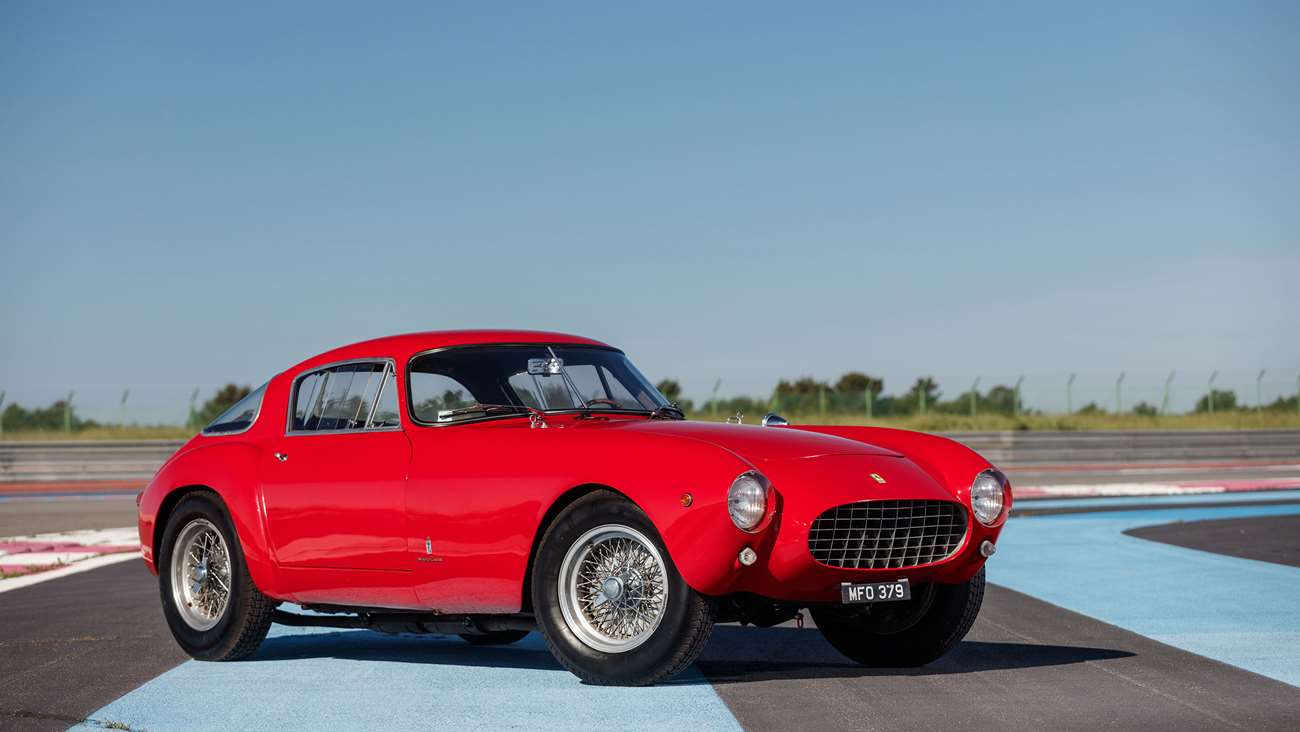
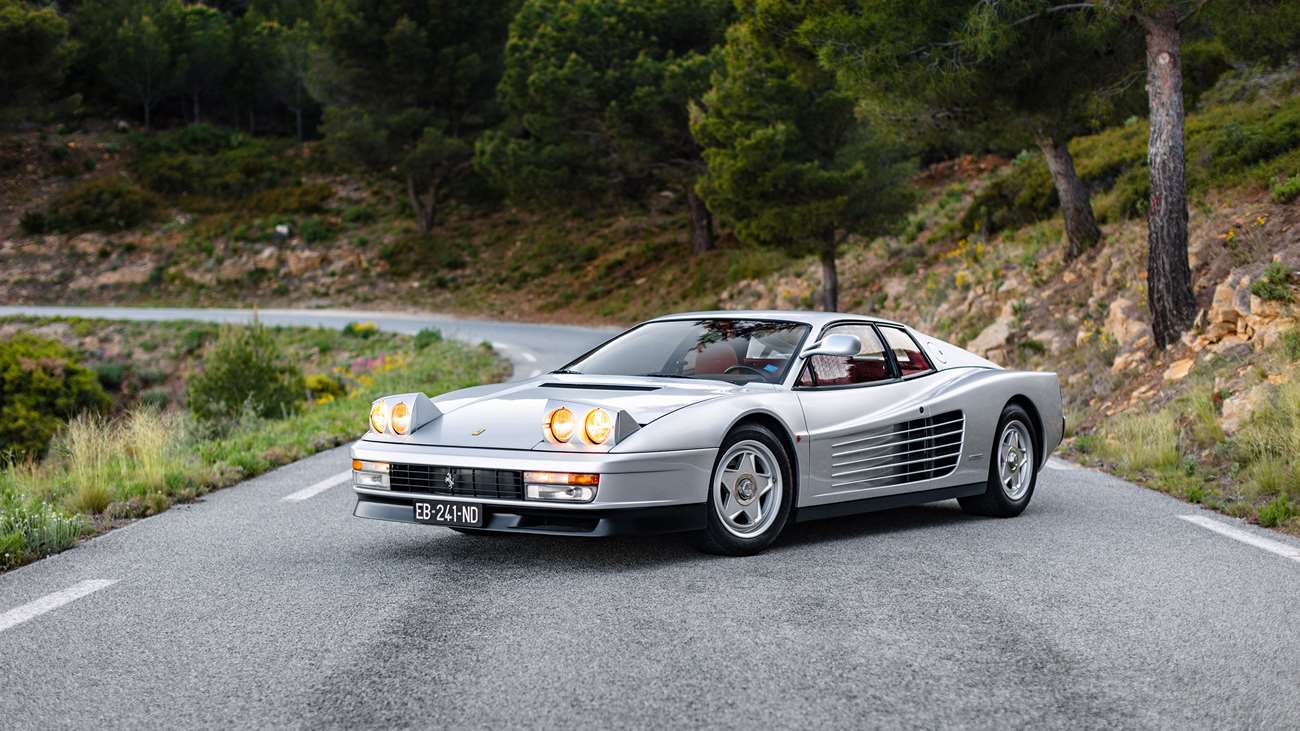
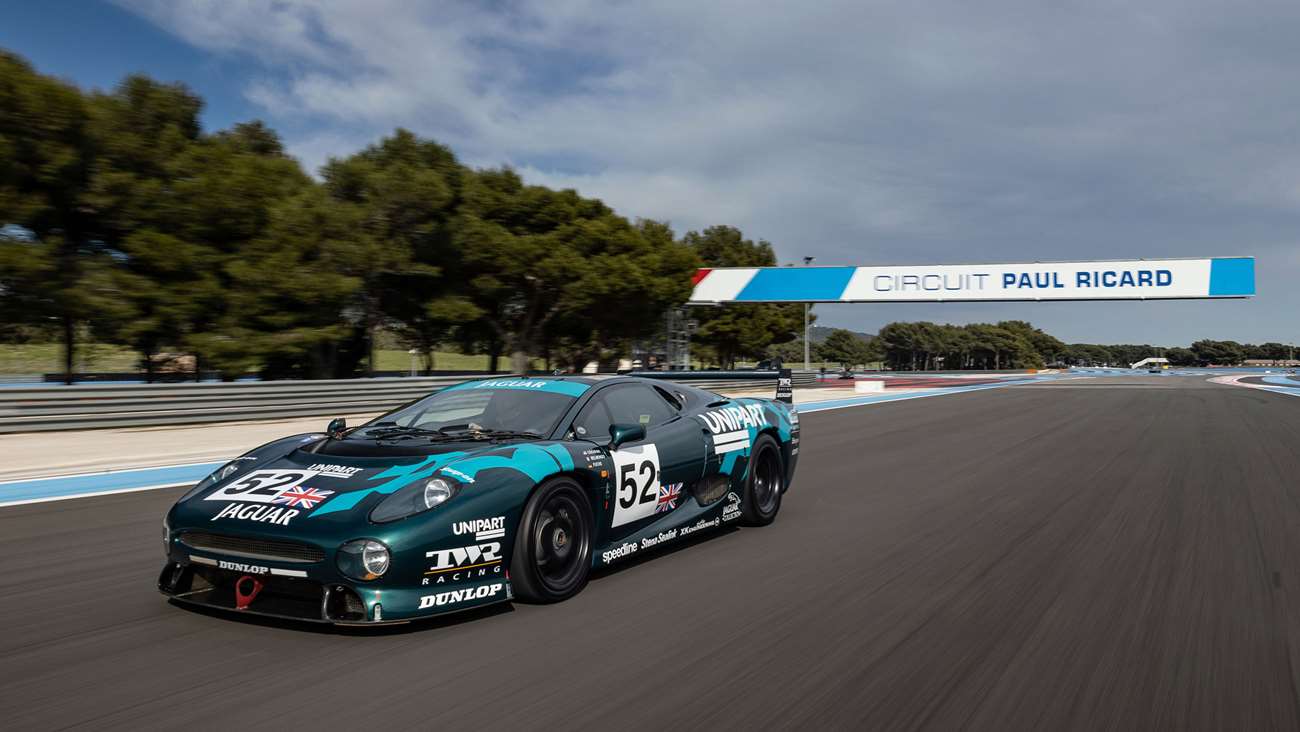
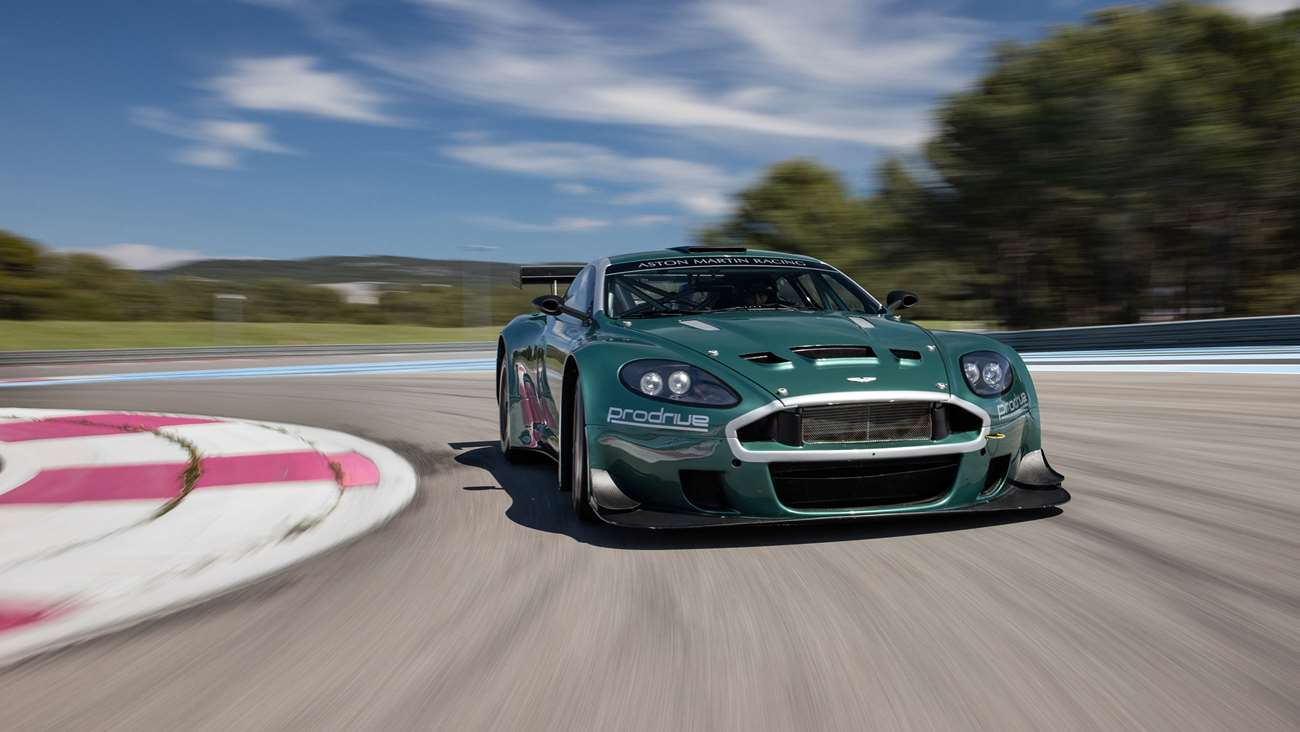
The Guikas Collection in all its glory. Source: RM Sotheby's
The Guikas Collection sale recently was extremely successful; it was a single-owner collection. Is there something more special about auctioning those than regular lots?
Yes. It’s always a big deal for the customer, whether it is part of their collection or their entire collection. It’s a big thing for them to finally decide to do, because some people may have been collecting for a handful of years, others could be decades. It's a very emotional experience for them. When we bring these cars or collections up for auction, they're always without reserve and the quality is really good. Most of the time they've had long term ownership, so I think it's exciting for people to come and see. Maybe it's a certain car that one collector has always had that's never been for sale, and it's finally coming up. Other times a lot of people go for the deal - could there be a deal on a car? I want to go and I want to pay attention. It's very rare that there is a great deal on a car however; everything does, at the end of the day, end up bringing market value.
Of course we've had numerous times where cars are bringing far more than that; there's just something in the air that a private no-reserve collection elicits that makes cars bring more money. We've set more world records at times like that for certain cars than anything at a regular auction, whether it be the 330 GTS I can remember or a Toyota 2000 GT. I think we sold the first one that brought in over $1 million, which nobody had ever seen before. Then all of a sudden the whole market got there quickly, but we were first with some of these collections of certain cars that set the benchmark for highest price ever paid. They're just special.
It must be quite emotional for some of these single owners to see their life's collections finally going.
Yes, it happens for various reasons, but I think we make it a very special experience for them. A lot of the people we've done collections for have become really good friends of our company, and if they weren't before and they decided to go with us, by the end of it, they’re friends with us for life. It’s an interesting part of our business for sure.
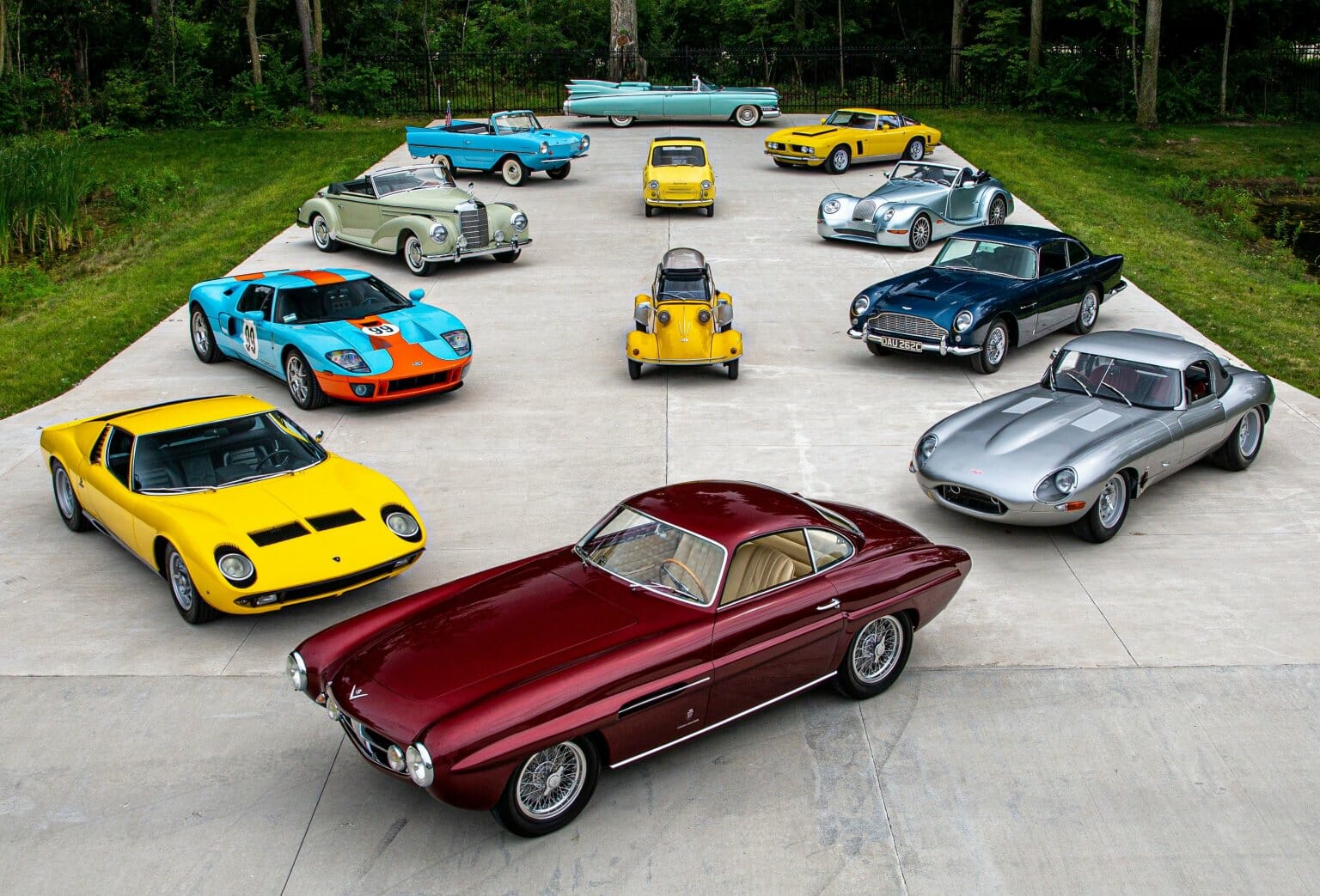
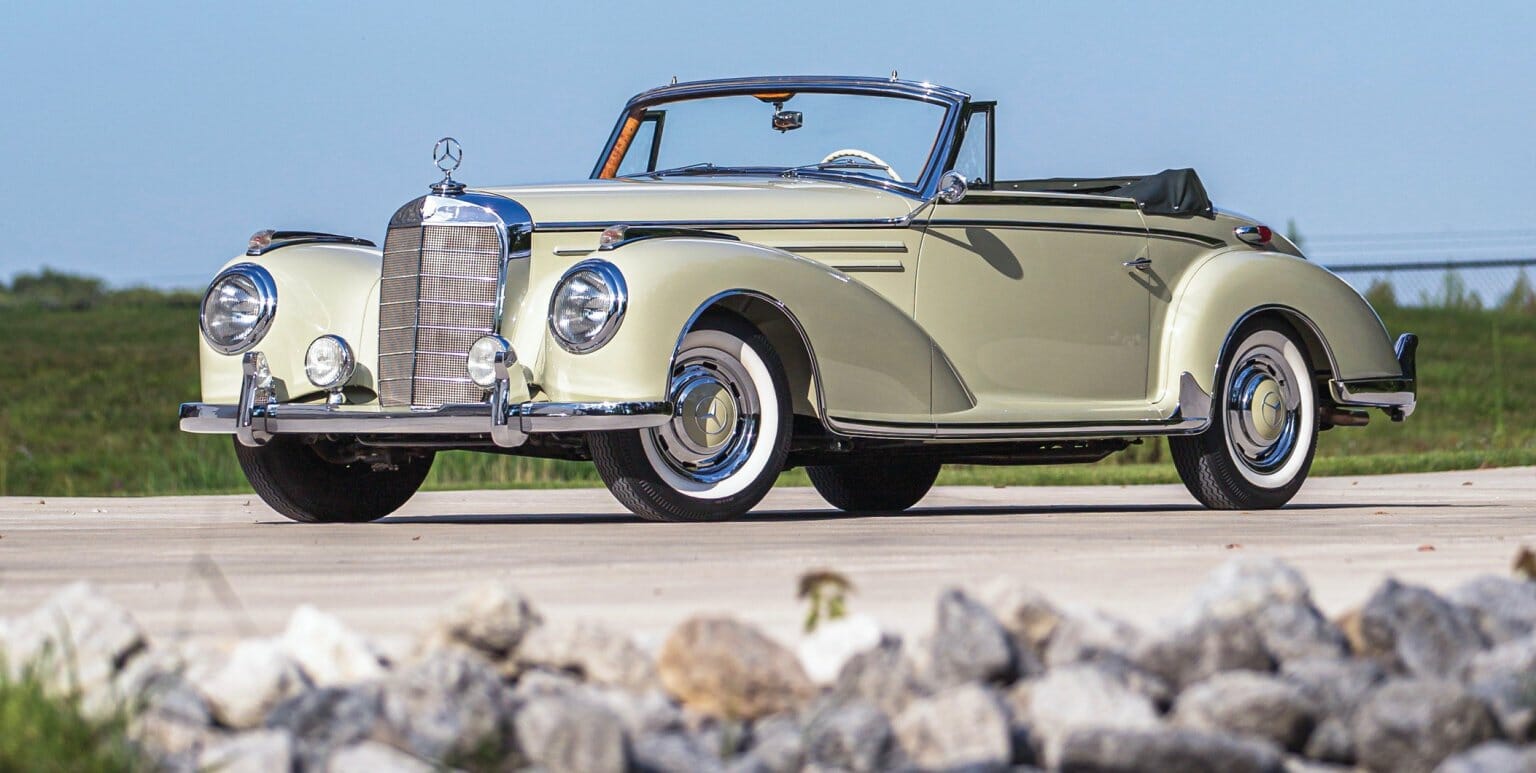
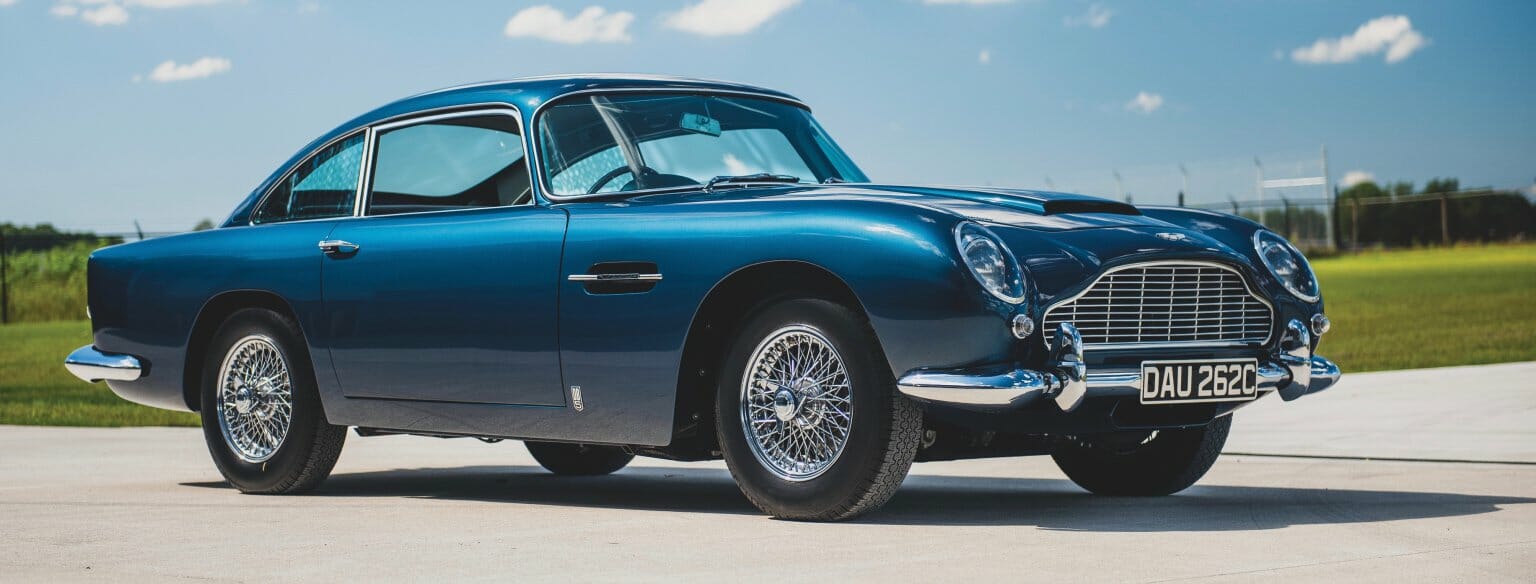
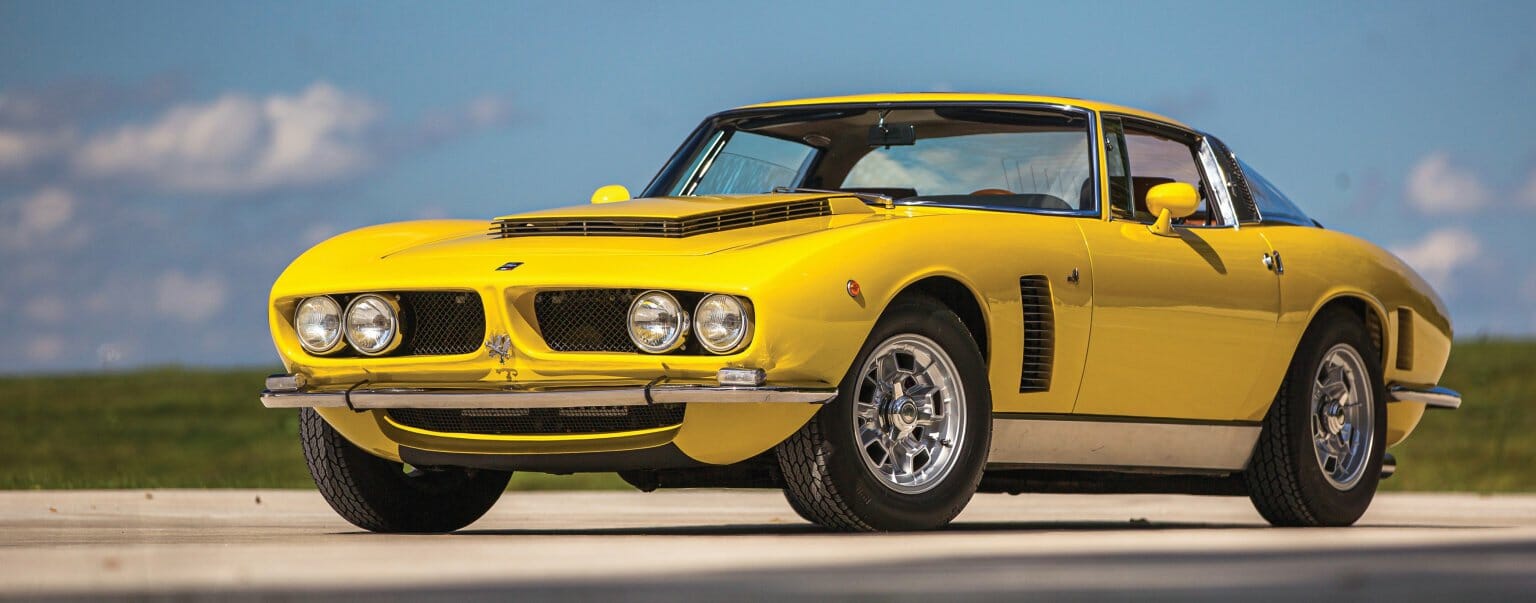
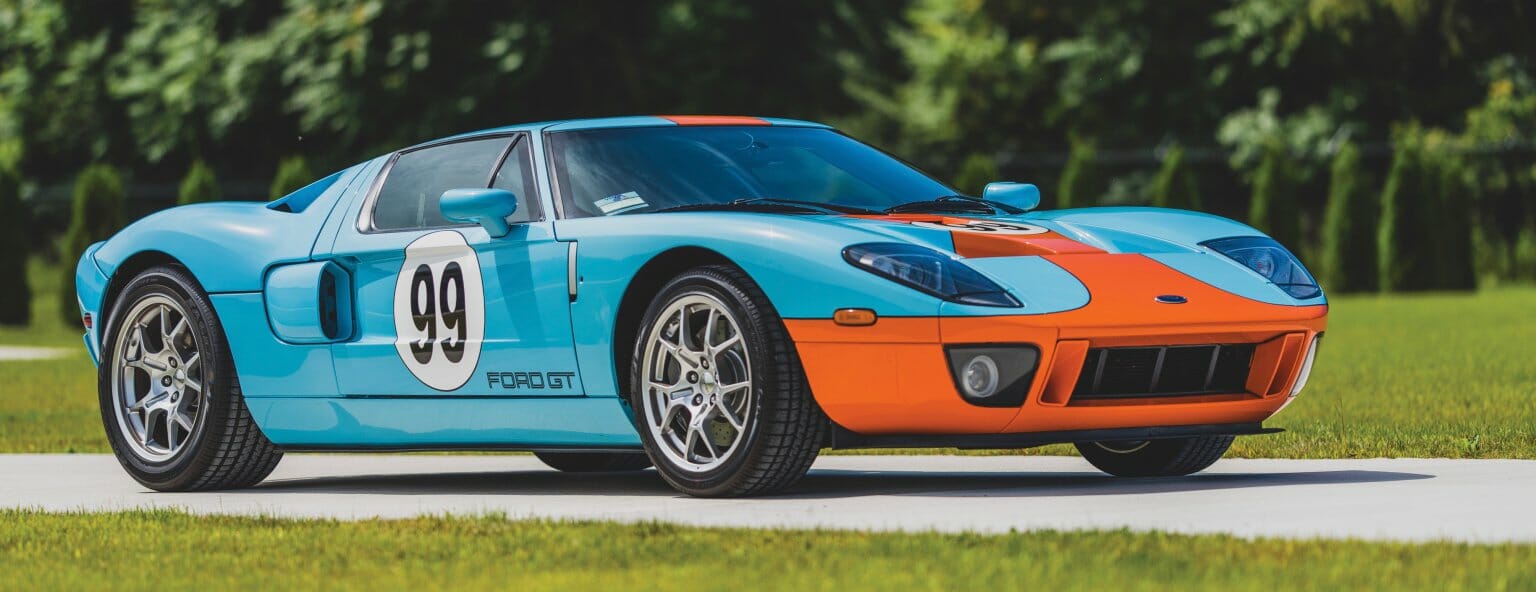
Some of the 230 cars sold in 2020 as part of the single owner Elkhart Collection, with the sale achieving $44.4 million in total sales. Source: RM Sotheby's
Let's talk about your personal garage. You mentioned your love of classic American cars earlier - but what's in the collection? Any particularly special cars or stories?
I have a ‘66 Shelby GT 350 that I have probably had for 12 years. There's a very special story and a good memory attached to a car that I consigned that sort of led me to be able to get that car. In the course of 12 years (despite having kids and getting busy with work more recently) I’ve probably put 20,000-plus miles on that car, doing different rallies and driving it out to our office in LA. I've taken it all over the place, and it's as reliable as my daily driver. It's the one car where I know I'm in real trouble if I ever have to sell it! There will be lots of other things that I'm sure will come and go, but that will be a car my kids will have to fight over when I'm gone!
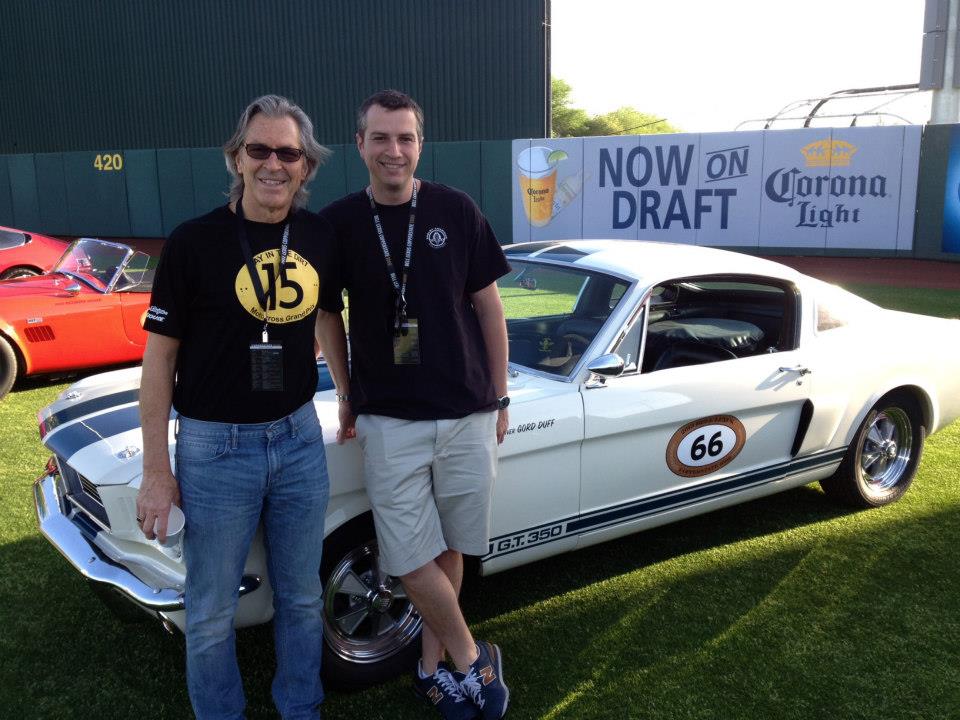
Is that the kind of car you worked on when you were younger?
I had to grow up being a Ford guy because of my dad, but I never dreamed that I would be able to afford that type of car. Starting at RM and seeing Shelby Mustangs, at least early on, well, that was the supercar for me. It was the ‘some day I would love to own one of those’ car. Honestly it was always like a ‘67 GT500, because that was the ‘Gone In 60 Seconds’ one right? I always thought that was the car to have, and then getting in the business I learned why a ‘65 6 is a better car, and about engines and small blocks.
I always thought you needed the biggest motor in a car to be the best, and then I realised that smaller motors that rev higher are actually cooler in many ways. So yes, that's kind of how I ended up with it, but it wasn't a car on my wall as a kid or anything like that. However it turned out to be the first one, and it's always going to be the most special for me.
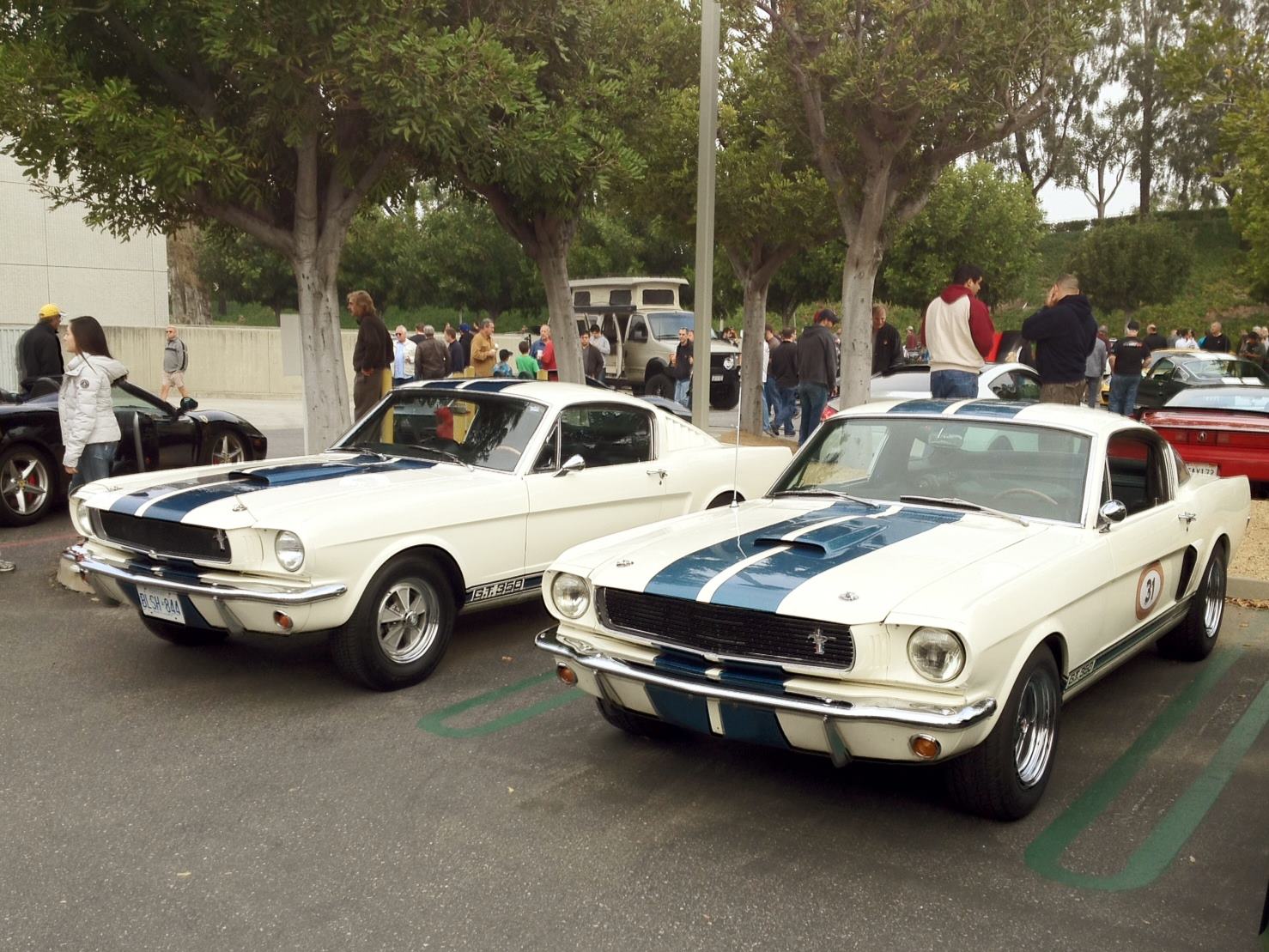
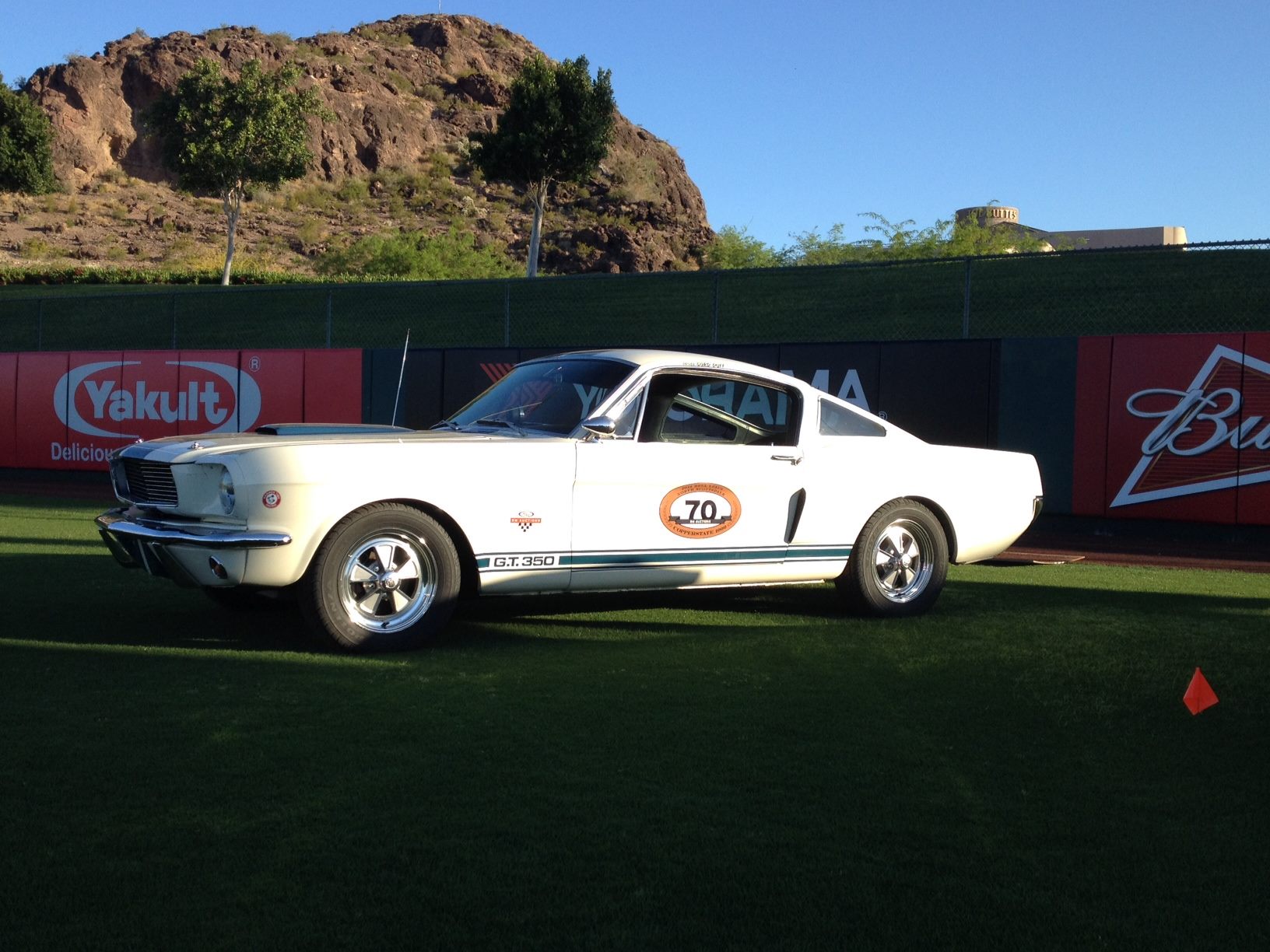
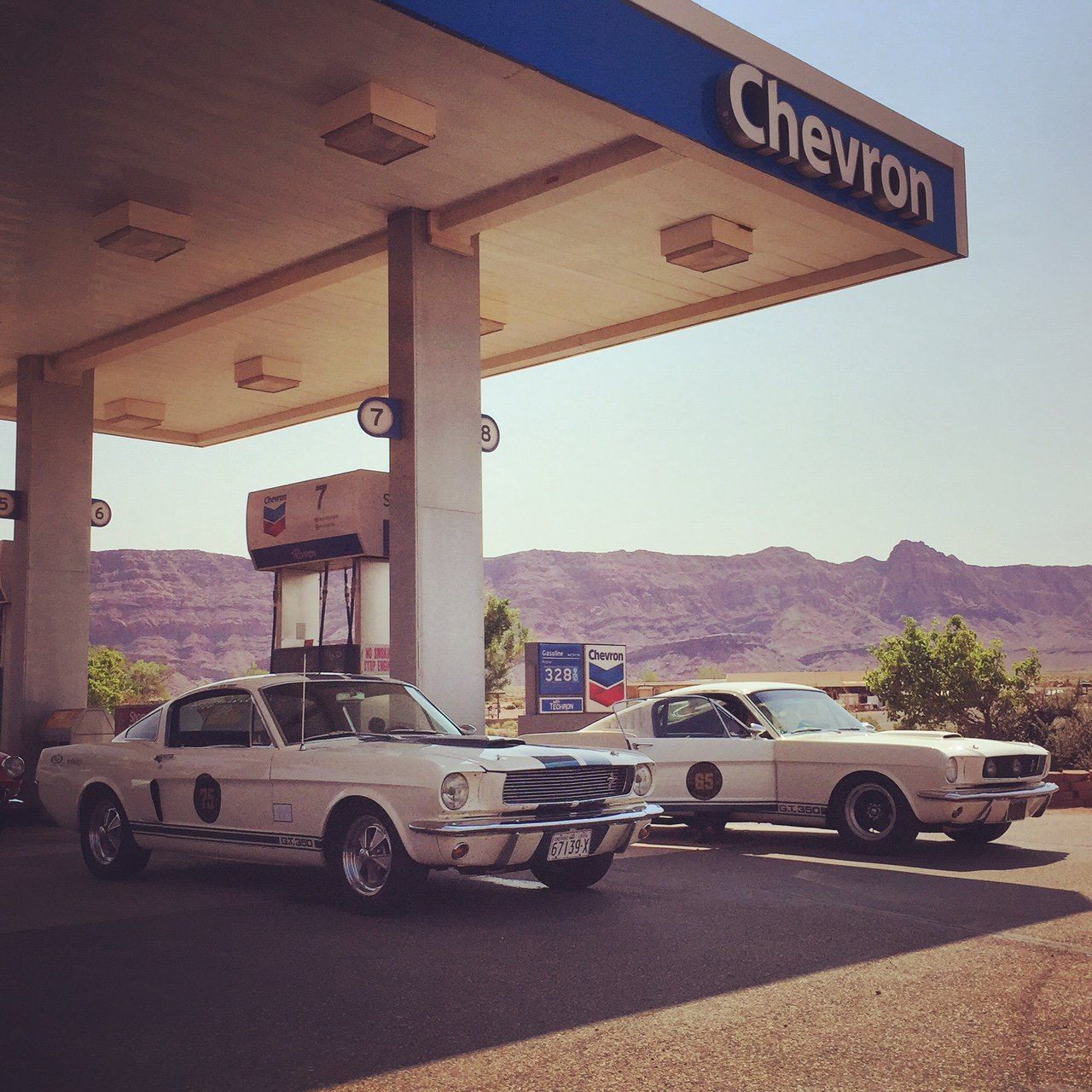
Gord's Shleby GT350. Source: RM Sotheby's
So no dreams of Lamborghinis and other strange poster stuff?
I love Countaches and Testarossas and 959s and all that kind of thing, and maybe some day some of those will go through my garage as well, but yes, being in this business you see every kind of car. You fall in love with some more than others, but I get to see so much stuff, and I've driven so many different kinds of cars, that I can love all of them for what they are or the era they're from. I understand I've got to drive a car from the ‘30s very differently to one from the ‘70s. I just did the London to Brighton Veteran Car Run a month ago and I was in a 1903 Mercedes, and it was unbelievable. Like, it was a 30 mph car, but I felt like we were in the Ferrari of London to Brighton cars, compared to much of the other stuff that was out there!
That actually leads me onto my next question: is there any kind of classic car or modern car that has surprised you, either in a good way or a bad way?
For just value, or just in general?
Driving mainly, but it could be value as well, or just the reality versus the popular reputation.
I'm a fan of all cars, but obviously I've grown up around a restoration shop here, and we restore mainly American and European classics. So ‘30s era 540k Mercedes, Duesenbergs, Packards. Duesenberg kind of has it for me; it's the 8C Alfa of America in my mind. It's a car that was built in the early-to-mid 1930s and had a 265bhp engine in it, whereas a 1930s Ford or a Pontiac would have had a 50bhp engine. You have the technology of a dual overhead cam straight-8 that had that kind of horsepower, and then you could get one with a supercharger on it to make it even more powerful. I mean for the time period, there was nothing else that even came close to it.
So that's something when you sit back and think about it was amazing engineering at the time - and you paid for it! It was a very expensive car back in the day, but that's big horsepower for a 1990s sports car right, so the fact they had it back in the early ‘30s is pretty crazy to think about.
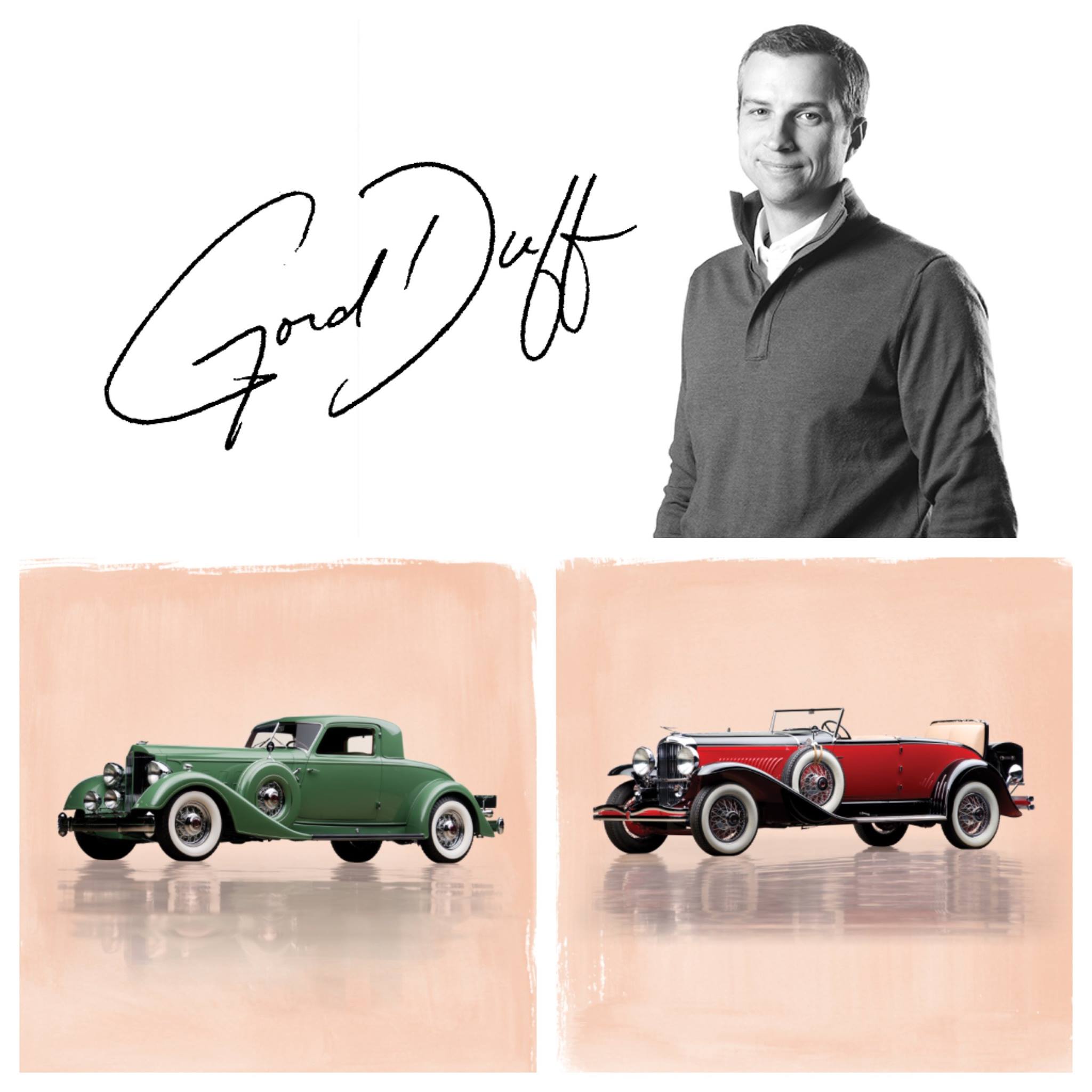
How do they drive? I've obviously never driven one!
Some people would say they drive like a truck… to me, I guess I'm used to them! Yes, they're hard to steer at low speeds maybe, but I've just been around them so much, I can drive one of those like a modern car with power steering, almost. They're a heavy car, so you give yourself a little more time to brake, but you can run down the road at 60 mph all day, with no problems. So yes, it would be different if you had never sat behind the wheel; then it would feel big, but to me it's just normal.
We're coming up on time, so I've got some quick fire questions to end with. First, what's the greatest car you've ever sold?
I've sold a lot of great cars! I have something that was very special, the first big dollar car for me, a ‘53 Ferrari 340 Mexico. I have a picture of it on my wall. There were a lot of things that went into making that a special moment for me, and it brought in a lot more than we thought it would. It exceeded expectations at the auction, and there were a lot of people that helped make that happen, so I guess it's kind of always going to be super special to me.
Second: what are the best and worst things about your job?
The travel, and the travel! I love going out, and I've been to more places around the world than I would have ever imagined, places that I had never heard of until right before I went, but you look back and I've been travelling a lot. So it's been great, and on the other hand, it keeps me away from home a lot.
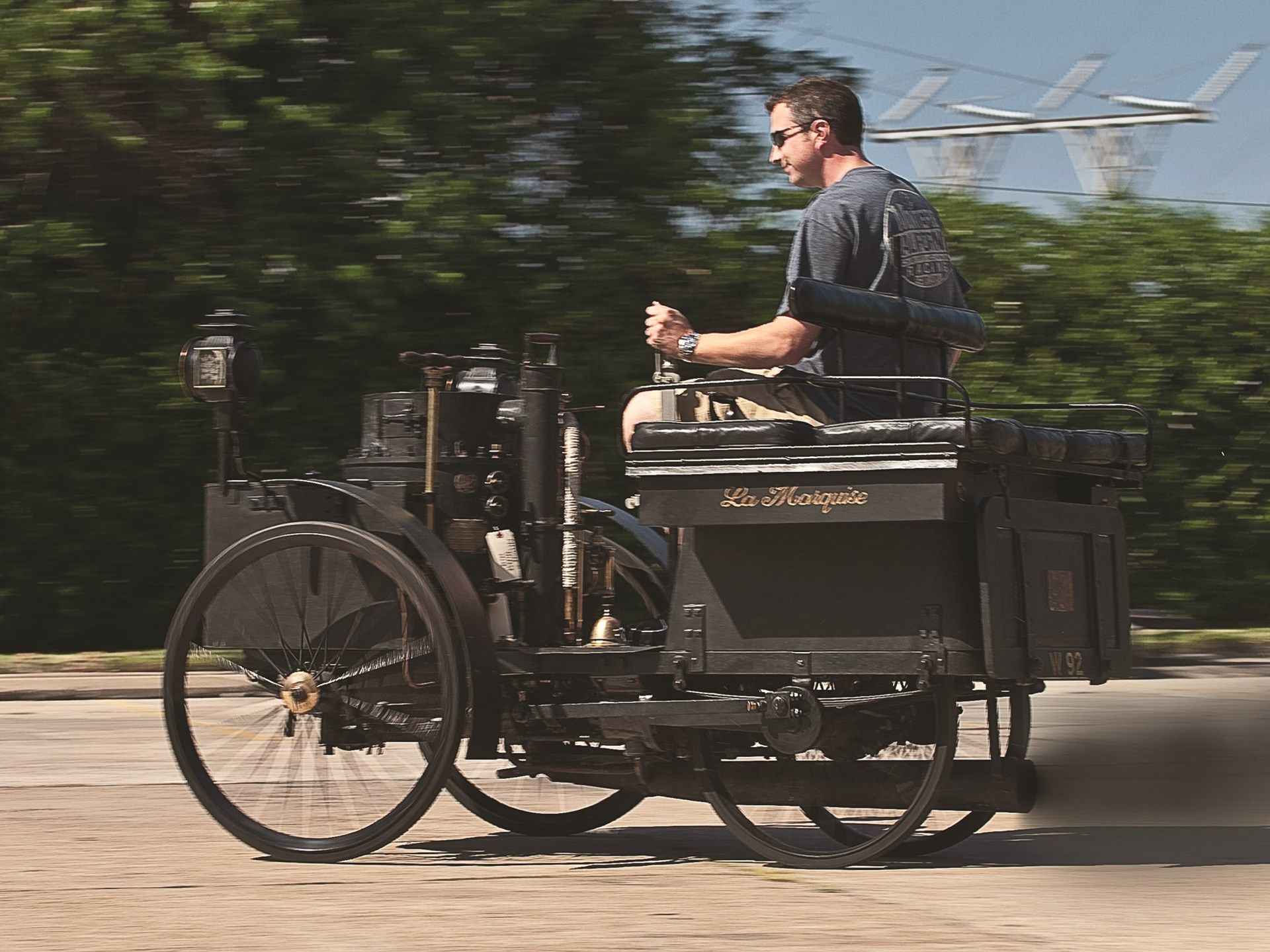
Last question: what's your single money-no-object car, that you would happily hold onto forever and never sell?
Well since I already have the Shelby, so that one aside, I've got to say either a Duesenberg or a 275. I’d want an American great of course, but I would also have a Ferrari GTB/4 or something in my garage.
I think that's the perfect answer. Gord, that just leaves me to thank you very much for such an interesting interview.
Thanks a lot for having me!
For more information about RM Sotheby's you can visit their website at https://rmsothebys.com/.

